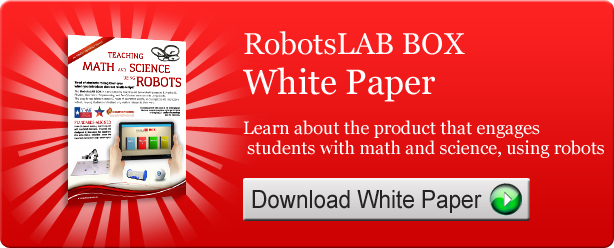What do robots and soft skills have in common in relation to EdTech? The answer, at least to this writer, was "more than I thought!"
I am assuming that anyone reading this post knows what a robot is. But in the absence of a formal definition, let's agree with a paraphrase of Supreme Court Justice Potter Stewart’s famous definition: I know one when I see one.
The definition of "soft skills" may be another matter. I hate to admit it, but until stumbling across the term in an interesting Eschoolnews post the other day, I’d never heard the term before. I went to the Wikipedia and et voilà!! there it was, the definition: “Soft skills are personal attributes that enhance an individual's interactions, job performance and career prospects. Unlike hard skills, which are about a person's skill set and ability to perform a certain type of task or activity, soft skills relate to a person's ability to interact effectively with coworkers and customers and are broadly applicable both in and outside the workplace.” You know, stuff like showing up on time for work and not punching-out the boss when he criticizes you.
This Eschoolnews post discussed a money grant made to the Pomona school system to fund a soft skills program for its adult classes. The best adult learning classes require a practical approach to the discipline taught, whether it be English or Math. As Win Learning, the developer of the soft skills program purchased by Pomona brags on their website, their program will answer the existential question almost every student--adult or elementary--has, “When am I ever going to use this?” An answer a teacher of any discipline can appreciate.
So successful was this program that the post went on to say, “Because of the program’s flexibility, ease of use, and relevancy, we are now in the process of expanding the soft skills curricular framework beyond our CTE elective courses and into the core curriculum delivered to all of our high school students.”
I was drawn to the words “flexibility, ease of use, and relevancy,” as three values soft skills share with robots in relation to EdTech. Robots are certainly flexible: our RobotsLAB Box, for example, is a prize-winning, engaging tutor for math students of all ages; and the anthropomorphic robot NAO serves as valuable assistant for teachers of autistic children. Robots are easy to use: very little additional training is required for a teacher to use either the RobotLAB Box or NAO proficiently. As for relevancy, what could be more relevant for job seekers in this technologically driven economy of ours than the experience of working and studying with robots? As for the question “When am I ever going to use this?,” students working with robots find it answers itself.
So, what do robots and soft skills have in common in relation to EdTech. Simple: flexibility, ease of use, relevancy and an answer to existential questions teachers could never answer before!

